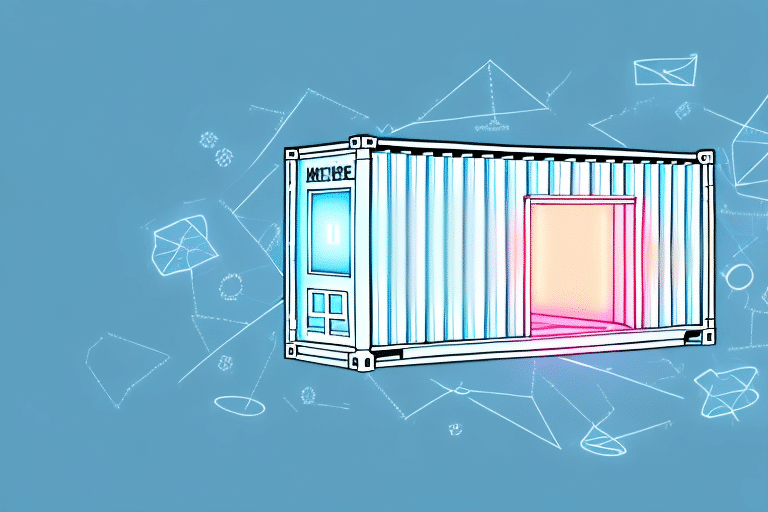Importance of Innovation in Shipping Operations
Shipping operations are a vital component for any business handling physical products. As businesses grow, the complexity of shipping processes increases, necessitating continuous innovation to meet customer demands and stay competitive. According to a Statista report, the global logistics market reached over $8 trillion in 2023, underscoring the importance of efficient shipping operations.
Innovative shipping processes can enhance customer satisfaction, reduce operational costs, and boost revenue. Implementing cutting-edge technologies like drones or autonomous vehicles for last-mile delivery can significantly cut delivery times and expenses. Furthermore, integrating real-time tracking and communication systems fosters transparency and provides customers with accurate delivery estimates, improving their overall experience.
In addition, focusing on sustainability within shipping operations not only reduces environmental impact but also appeals to eco-conscious consumers. Adopting alternative fuel sources, such as electric or hybrid vehicles, and optimizing packaging to minimize waste are key strategies in achieving sustainable shipping practices.
Challenges of Scaling Shipping Operations
Scaling shipping operations presents several challenges, including managing increasing volume, coordinating with multiple carriers, handling diverse shipping locations, and maintaining accurate inventory management. As these factors multiply, the shipping process can become convoluted, making innovation more difficult to implement.
Ensuring timely and accurate delivery amidst these complexities is a significant hurdle. Delays and inaccuracies can lead to customer dissatisfaction and lost revenue. To address this, businesses can invest in advanced technology solutions such as automated systems for real-time tracking and notifications. Partnering with reliable carriers and optimizing shipping routes are also effective strategies to ensure deliveries are prompt and precise.
Opportunities for Innovation in Shipping Operations
Streamlining Shipping Processes
Identifying and eliminating inefficiencies within shipping processes can lead to substantial improvements. Streamlining operations through automation and process optimization not only reduces costs but also accelerates delivery times.
Sustainable Practices
As environmental concerns grow, sustainable shipping solutions become increasingly important. Businesses can adopt eco-friendly packaging materials, optimize delivery routes to reduce fuel consumption, and utilize renewable energy sources to power transportation fleets.
Embracing New Technologies
Automation and Artificial Intelligence
Integrating automation and AI into shipping operations can enhance efficiency and accuracy. Automated systems can handle repetitive tasks, reduce human error, and process orders faster, while AI can predict demand patterns and optimize inventory levels.
Blockchain for Transparency and Security
Blockchain technology offers a secure and transparent way to manage shipping transactions. By creating a decentralized ledger, blockchain ensures the integrity of shipment data, reduces the risk of fraud, and enhances supply chain visibility.
Building a Culture of Innovation
Fostering a culture that encourages innovation is essential for driving continuous improvement in shipping operations. This involves empowering employees to share ideas, experimenting with new tools and processes, and promoting a mindset of continuous learning and adaptation.
Providing professional development opportunities and creating cross-functional teams can stimulate creativity and lead to more effective solutions. Encouraging open communication and collaboration across departments also contributes to a more innovative organizational environment.
Understanding Customer Needs
Gaining a deep understanding of customer expectations and preferences is critical for innovating shipping operations. By actively seeking customer feedback and analyzing behavior data, businesses can identify pain points and tailor their shipping processes to better meet consumer demands.
For example, if customers express a preference for faster delivery options, businesses can explore offerings like same-day or next-day shipping. Additionally, analyzing shipment data can reveal trends that inform strategic decisions, such as popular delivery times or preferred shipping methods.
Case Studies and Future Trends
Several companies have successfully implemented innovative shipping solutions to scale their operations effectively. For instance, Amazon revolutionized the logistics industry with its Prime two-day shipping, setting new standards for customer expectations. Similarly, UPS and FedEx have enhanced the customer experience through real-time tracking and delivery notifications.
Emerging technologies like drone delivery and autonomous vehicles hold the potential to further transform the shipping landscape. According to a McKinsey report, drone deliveries could reduce shipping times by up to 50% once regulatory hurdles are overcome.
Moreover, sustainability continues to shape future shipping trends, with companies increasingly adopting green practices to minimize their environmental footprint and meet regulatory requirements.
Conclusion: Implementing Innovative Solutions in Scaled Shipping Operations
In summary, driving innovation in scaled shipping operations is essential for businesses to adapt to evolving customer demands and maintain competitiveness. By identifying opportunities for improvement, embracing advanced technologies, fostering an innovative corporate culture, and understanding customer needs, businesses can enhance their shipping processes, reduce costs, and elevate the customer experience. Staying informed about future trends and learning from successful case studies can further guide businesses in effectively implementing innovative solutions in their shipping operations.




















